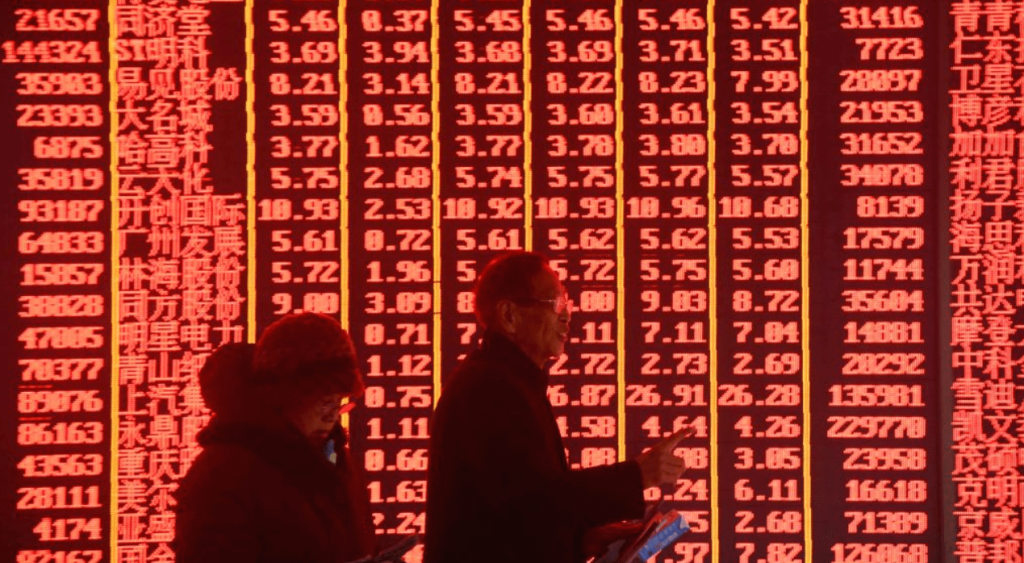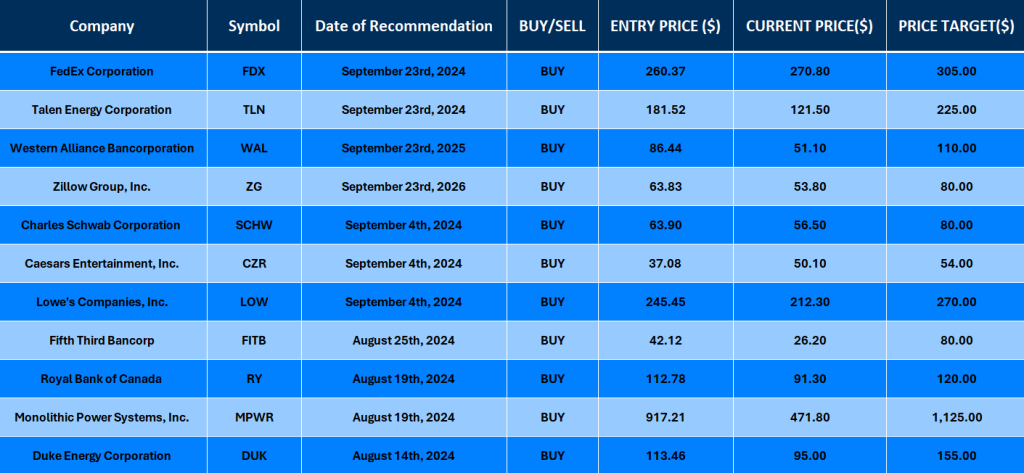
Date Issued – 8th October 2024
Preview
In today’s newsletter, we cover the Federal Reserve’s rate strategy, Hong Kong’s market drop, rising China-EU trade tensions, cybersecurity threats to U.S. infrastructure, and Hyundai’s U.S. EV expansion. Each section includes key insights and market updates to guide your investment decisions.
Federal Reserve Confirms Rate Cut Strategy
The Federal Reserve has reaffirmed its commitment to supporting economic growth by signaling another 0.25% rate cut for November. This decision follows the 0.50% cut implemented in September, marking the first downward shift since 2020. Fed officials expressed confidence that the gradual reduction approach would help manage inflation, which is nearing their 2% target, while maintaining economic momentum. The Fed also hinted at a potential additional rate cut in December, which markets have already begun to price in.
Investment Insight: With the Fed’s continued support, interest rate-sensitive sectors like real estate and financials are positioned for growth. Investors should consider increasing exposure to these sectors, particularly as consumer lending rates are expected to decrease.
Market Price: S&P 500 Index: 5,695.94 USD
Hong Kong’s Hang Seng Index Plummets by 9.5%
Hong Kong’s Hang Seng Index saw a dramatic 9.5% drop as investors responded to growing skepticism over Beijing’s recent economic measures. The decline marks one of the steepest single-day drops this year, fueled by concerns that China’s efforts to stabilize its economy may not be enough to sustain recent gains. The sell-off affected a broad range of sectors, including technology, real estate, and finance, as investors pulled back due to lingering uncertainties surrounding China’s economic recovery and regulatory environment.
Investment Insight: The drop in the Hang Seng Index highlights the volatility of Chinese and Hong Kong equities. Investors should remain cautious about increasing exposure to these markets until clearer economic signals emerge. Diversification into other emerging markets or sectors less dependent on Chinese demand could mitigate risks.
Market Price: Hang Seng Index: 20,926.79 HKD

Euro Weakens as Europe Faces Growth Stagnation and Inflationary Pressures
The euro has dropped to 1.0453 USD, highlighting ongoing challenges within the Eurozone as economic growth stagnates while inflation remains high. With manufacturing output declining and consumer sentiment weakening, the region’s economic recovery faces significant headwinds. The European Central Bank (ECB) is under increasing pressure to address these issues, balancing the need for growth stimulation with the risk of further inflation.
ECB officials are considering more aggressive measures, including potential interest rate cuts and quantitative easing to inject liquidity into the economy. However, such moves come with risks, particularly as inflationary pressures remain strong in certain member states. The divergence in economic performance between core and peripheral countries adds complexity to the ECB’s decision-making process.
Market Price: EUR/USD: 1.0453 USD
Turkish Inflation Falls Below 50%, Aiding Economic Recovery Efforts
Turkey has reported that its inflation rate has dropped below 50% for the first time in over a year, signaling progress in the central bank’s efforts to stabilize the economy. Following a series of aggressive interest rate hikes, inflation decelerated, providing a much-needed reprieve to businesses and consumers. The Turkish lira has responded positively, gaining some ground against the U.S. dollar, though it remains under pressure as the country navigates economic recovery.
Despite the improvement, Turkey’s economic outlook remains fragile, and experts caution that additional monetary tightening might be necessary to ensure inflation does not resurge. The government’s policy focus is shifting towards long-term growth strategies, including expanding the industrial base and boosting exports.
Market Price: Turkish Lira (USD/TRY): 27.14 USD
U.S. and Indian Solar Sectors Surge as Washington Imposes Tariffs on Chinese Imports
The U.S. has implemented stricter tariffs on Chinese solar panel imports, citing concerns over unfair market practices and the need to secure domestic production capabilities. This move has reshaped the global solar market, with U.S. and Indian companies rapidly expanding to fill the gap left by reduced Chinese competition. India, in particular, has positioned itself as a key player, with its solar firms seeing increased demand both domestically and internationally.
These policy changes are expected to boost renewable energy stocks in North America and India as both regions capitalize on the new market dynamics. While these tariffs are designed to reduce reliance on Chinese imports, they may also raise short-term costs for U.S. solar projects until domestic production scales up fully.
Market Price: First Solar (FSLR): 168.75 USD
Conclusion: Staying Proactive in a Dynamic Global Landscape
Over the weekend we have seen big development, from the strong U.S. labor market performance to supply chain resolutions and global policy changes. Investors should remain proactive, leveraging opportunities in growth sectors like renewable energy and emerging markets, while being mindful of ongoing risks in European economies. As always, we are here to provide insights and support for your investment strategy.
Upcoming Dates to Watch:
- October 10: U.S. Federal Reserve minutes release, potentially signaling future rate cuts.
- October 15: Eurozone inflation report and ECB policy update.
- Early November: Next U.S. employment data release, offering further economic insights.
Find below some of our Buy/Sell Recommendations. Balfour Capital Group is a distinguished global boutique investment management firm with $400 million AUM and over 1000 Clients.

Disclaimer: This post provides financial insights for informational purposes only. It does not constitute financial advice or recommendations for investment decisions.

